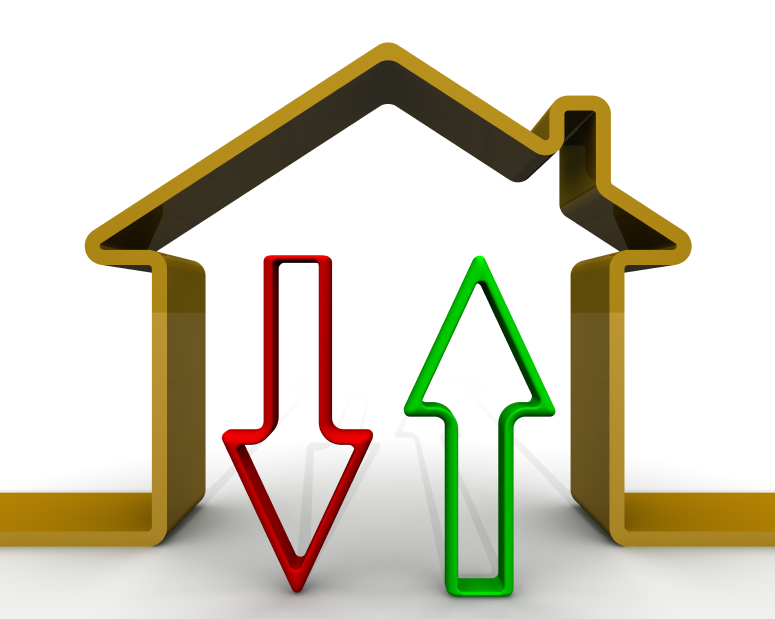This article is an external press release originally published on the Landlord News website, which has now been migrated to the Just Landlords blog.

The latest residential Index from the Nationwide Building Society suggests that house prices in the UK continue to rise.
Increases
Data from the report shows that property values in Britain rose by 0.4% in July, and by 3.5% year on year. The monthly rise comes after a slight fall of 0.2% in June, taking the average UK property price to £195,621. Annually, growth has gone up from the 3.2% recorded last month.[1]
Robert Gardner, chief economist at the Nationwide, said that there are signs that annual house price growth may be levelling out close to the speed of earnings growth, typically around 4%.
Gardner said that if this were to be the case, ‘this would bode well for a sustainable increase in housing market activity, though whether this will be maintained will depend on whether building activity can keep pace with increasing demand.’[1]
Continuing, he stated that, ‘employment growth has remained relatively robust in recent quarters, and, after a prolonged period of subdued growth, wage growth is also edging up. With consumer confidence buoyant and mortgage rates still close to all-time lows, demand for housing is likely to firm up in the quarters ahead.’[1]
Unclear
Despite the perceived positivity, Gardner conceded that he was unsure whether supply could eventually catch up with demand. He commented, ‘the number of new homes under construction has started to pick up, albeit from historically low levels, and further increases are required if a sustainable recovery in the housing market is to be maintained over the longer term.’[1]
Alex Gosling, chief executive officer of online estate agents HouseSimple, feels that property prices will continue to rise as demand grows faster than supply. Gosling feels that, ‘with strong employment, a rise in wage growth, and mortgage rates sticking at a record low, prices look like they’ll edge up further in the coming months.’[1]
‘The market desperately needs a boost in new homes if supply is ever to come close to catching up with demand,’ he continued. ‘But the spectre of an interest rate rise looms ever closer with expectations that the Bank of England will start raising them by the year end.’[1]
Gosling went on to describe the property market as, ‘an interest rate paradise,’ but feels that, ‘very soon, that will be a paradise lost.’ He went on to say that, ‘the extent of the impact of a rate rise on the market is a huge unknown.’[1]
Slow supply
Rob Weaver, director of property at residential investment platform Property Partner, believes that poor supply continues to hold back the property market. He noted that, ‘although demand is likely to drop off a little over the summer, easing house price growth, it is shaping up to be a solid Autumn, with prices set to rise more sharply as of September.’[1]
‘Sellers are likely to be in an increasingly strong position as the autumn progresses, although a cloud looms overhead in the form of a possible interest rate rise before the end of the year. Buyer demand and confidence remains strong right now, but an interest rate rise as early as December could see buyer confidence in the market ebb away very quickly. Even a quarter percent rise in the base rate could have a material effect on demand,’ he explained.[]
Weaver went on to say that more positively, ‘it’s encouragingly to see that buyers overall are paying less stamp duty and are shifting away from the traditional thresholds.’ He concluded by saying, ‘the clustering of old made for an artificial and ultimately restrictive market.’[1]
Prime problems
Jonathan Hopper, managing director of buying agents Garrington Property Finders also believes that with buyer demand and confidence remaining high, the rise of home values is being driven by low supply. He observed that, ‘the exception is the prime property market, which is still reeling from the rise in the top rate of stamp duty. While the Nationwide’s calculations show that the stamp duty changes have reduced price bunching and that most buyers are paying less of the tax, the top 2% are paying an average of £28,000 more per purchase.’[1]
‘With nearly half of all the stamp duty paid in England and Wales collected in London, this is having a substantial chilling effect on the capital’s prime property market. The stamp duty hike was supposed to gently apply the brakes to stop the prime property market racing away. But in the event its effect has been more of an emergency stop,’ he added.[1]
[1] http://www.propertywire.com/news/europe/uk-house-price-index-2015080410822.html




